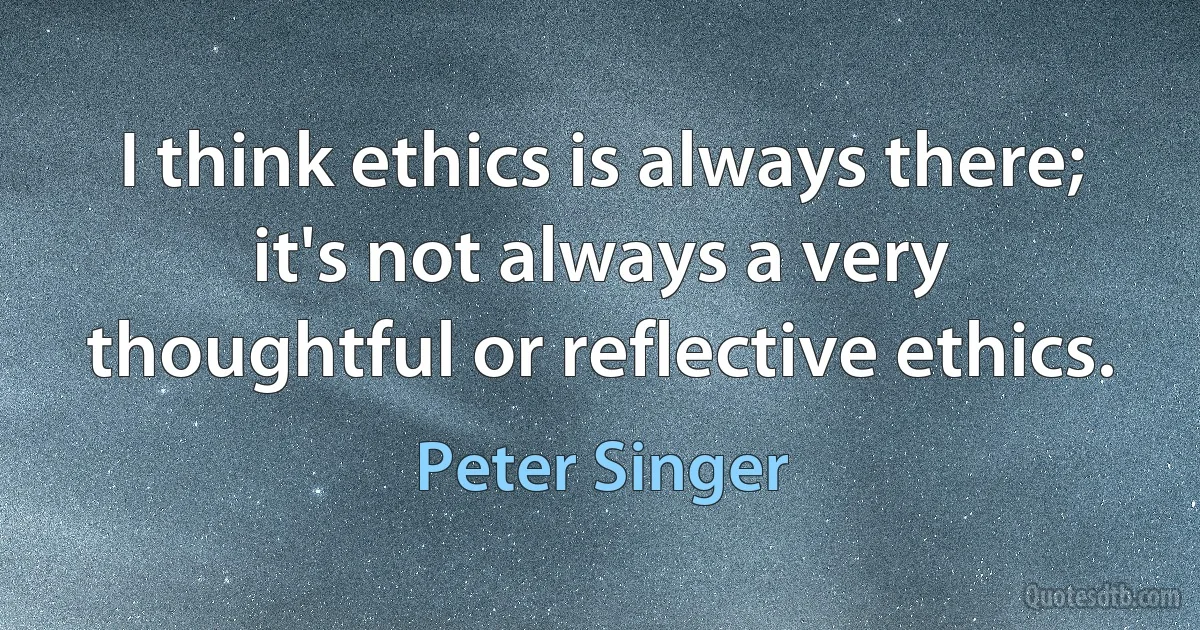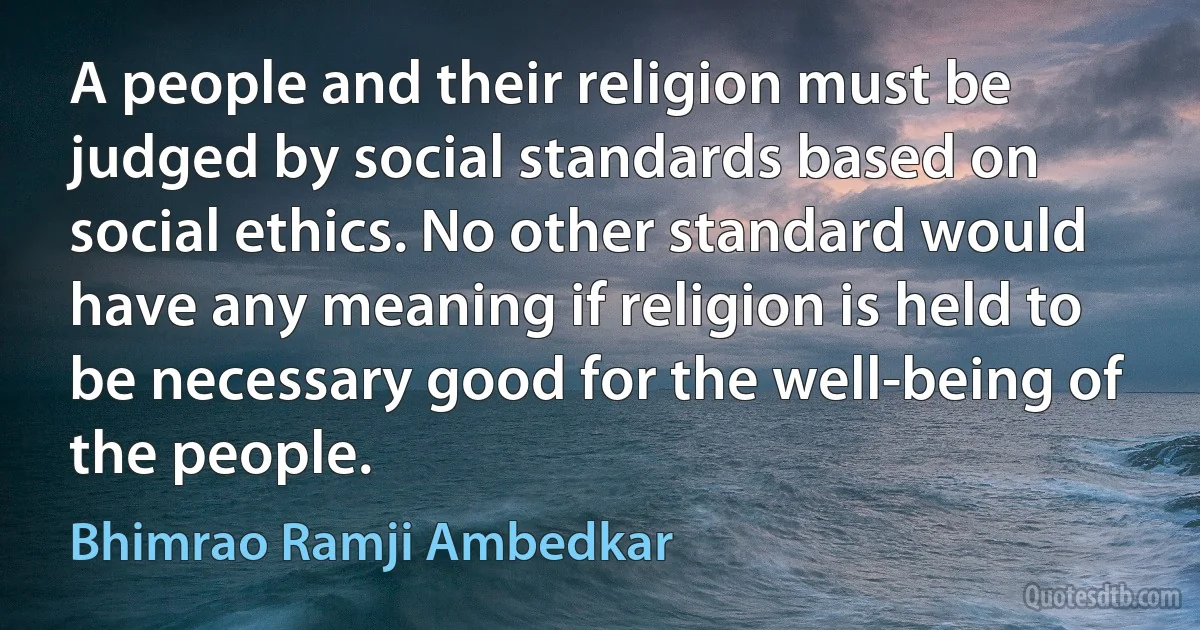Ethics Quotes - page 7
My main problem was, naturally, religion: from it I moved later on to the principles of ethics. First to be examined was my positive religion [ie. Judaism]. It collapsed. So I wanted to base myself on naturaly religion: but my agony was so great, that this [foundation] also collapsed before my eyes. Nothing, nothing remained. I was the most miserable person in the world. I became an atheist.

Moses Hess
By this sinister elision, this slipping from true remorse, the belief that the suffering we have precipitated ought to ennoble us, or at least make us less ignoble from then on, to disguised self-forgiveness, the belief that suffering in some way ennobles life, so that the precipitation of pain comes, by such a cockneyed algebra, to equal the ennoblement, or at any rate the enrichment, of life, by this characteristically twentieth-century retreat from content into form, from meaning into appearance, from ethics into aesthetics, from aqua into unda, I dulled the pain of that accusing death; and hardened myself, to say nothing of it at Bourani. I was still determined to tell Julie, but at the right time and place, when the exchange rate between confession and the sympathy it evoked looked very likely to be high.

John Fowles
To me, it really seems visible today that ethics is not something exterior to the economy, which, as technical matter, could function on its own; rather, ethics is an interior principle of the economy itself, which cannot function if it does not take account of the human values of solidarity and reciprocal responsibility.

Pope Benedict XVI
To countless generations of religious thinkers, the fundamental maxim of Christian social ethics had seemed to be expressed in the words of St. Paul to Timothy: "Having food and raiment, let us be therewith content. For the love of money is the root of all evil." Now, while, as always, the world battered at the gate, a new standard was raised within the citadel by its own defenders. The garrison had discovered that the invading host of economic appetites was, not an enemy, but an ally. Not sufficiency to the needs of daily life, but limitless increase and expansion, became the goal of the Christian's efforts.

R. H. Tawney
These Peripatetics accordingly made careful investigations into the nature of all things, so as to determine which I should be avoided as evil, discounted as useless, sought after as good, or preferred as better, and finally which are called "good" or "bad" according to circumstances. There thus developed two branches of philosophy, natural and moral, which are also called ethics and physics. But, through lack of scientific skill in argumentative reasoning, many absurdities were concluded. Thus Epicurus would have the world originate from atoms and a void, and would dispense with God as its author; whereas the Stoics asserted that matter is coeternal with God, and held that all sins are equally grave. p. 76.

John of Salisbury
Neither of us is very trustworthy, eh?”
"Pfutz!” Reich said emphatically. "We don't play girl's rules. We play for keeps, both of us. It's the cowards and weaklings and sore-losers who hide behind rules and fair play.”
"What about honor and ethics?”
"We've got honor in us, but it's our own code...not the make-believe rules some frightened little man wrote for the rest of the frightened little men. Every man's got his own honor and ethics, and so long as he sticks to 'em, who's anybody else to point the finger? You may not like his ethics, but you've no right to call him unethical.

Alfred Bester
According to the way it is generally used today, the term 'ethics' relates above all to the domain of human rights, 'the rights of man'- or, by derivation, the rights of living beings. We are supposed to assume the existence of a universally recognizable human subject possessing 'rights' that are in some sense natural: the right to live, to avoid abusive, to enjoy 'fundamental' liberties (of opinion, of expression, of democratic choice in the election of governments, etc.) These rights are held to be self-evident, and the result of a wide consensus. 'Ethics' is a matter of busying ourselves with these rights, of making sure that they are respected.

Alain Badiou


![[W]e should be clear that neither genuine religious nor genuine moral impulses will ever be expressed in terms that tie the two essentially together. If you view religion as necessary for ethics, you've reduced us to the ethical level of 4 year olds. "If you follow these commandments you'll go to heaven, if you don't' you'll burn in hell" is just a spectacular version of the carrots and sticks with which you raise your children. (Susan Neiman)](https://cdn.quotesdtb.com/img/quotes_images_webp/44/susan-neiman-burn-children-455844.webp)
